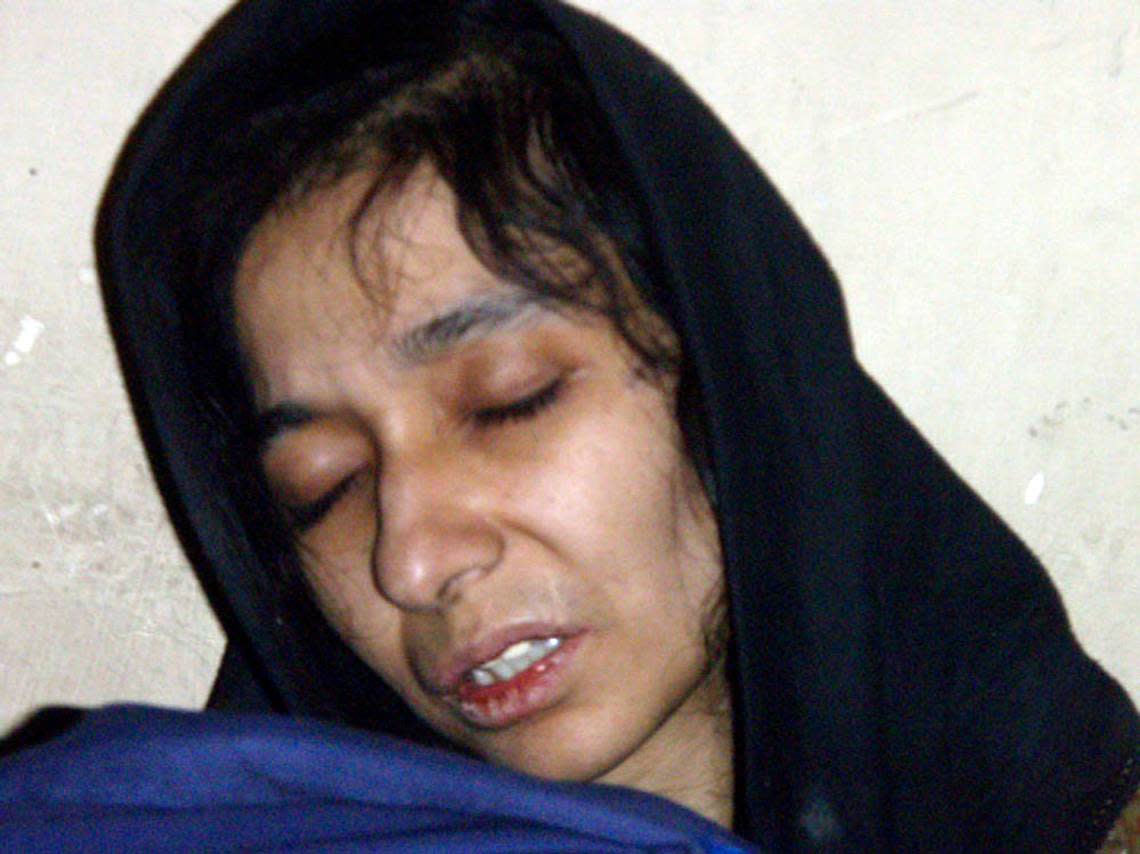
A man claiming to be Aafia's brother took people hostage at a Colleyville synagogue and demanded to speak with her.
After 9/11, she was the first female terrorism defendant to be arrested, and she was convicted of attempted murder and assault in Afghanistan.
ABC News reported that a U.S. official said the hostage-taker claimed to be Siddiqui's brother.
The Express Tribune, a daily English-language newspaper based in Pakistan, reported that a member of the Pakistani government called for the release of Siddiqui.
The Federal Medical Center-Carswell prison in Fort Worth was where Siddiqui was sent for medical reasons in 2008. Carswell is the only federal medical facility for women in the US, and women who are in prison are often transferred to the prison for medical needs.
According to the Dallas-Fort Worth sector of the Council on American-Islamic Relations, Siddiqui told her attorney that she was attacked in her cell on July 30. A woman smashed a coffee mug into the face of another woman. After the attack, she was taken out of her cell in a wheelchair and put into solitary confinement.
Supporters have been calling for her release for a long time. In front of the federal courthouse in Fort Worth, supporters gathered to demand proof that she was still alive and that she be released and returned to Pakistan.
The Bureau of Prisons said that they do not comment on anecdotal allegations or discuss the conditions of confinement or health status for any inmates.
Who is Aafia Siddiqui?
The case is filled with contradictions. A graduate of the Massachusetts Institute of Technology. She moved back to Pakistan in 2002 after living in the Boston area for a decade.
She is seen as a hero in Pakistan. Her family and supporters say she was wrongly accused and used as a scapegoat in the war on terror. The Senate of Pakistan unanimously passed a resolution to take up the matter of the US freeing the woman known as the Daughter of the Nation.
She is a terrorist with ties to the ringleader of 9/11. She has been dubbed the "most wanted woman in the world" by counter-terrorism groups. The U.S. government has refused to trade her for hostages multiple times, including for journalist James Foley, who was executed by the Islamic State.
The appeal was filed by the lawyer of Siddiqui. She was held in the custody of both Pakistan and the US for five years and subjected to physical and psychological torture at the Bagram Detention Center north of Kabul, her attorney said.
According to the Department of Justice, she was arrested in Afghanistan in 2008 after five years on the run. According to a press release, officers who searched her found documents about the creation of explosives, descriptions of American landmarks and sealed bottles of chemicals. Sidiqqui pointed a rifle at a captain and yelled "may the blood of [unintelligible] be directly on your head" while in the Afghan facility.
The DOJ said that an interpreter lunged at her and pushed the rifle away. At least two shots were fired, but no one was hit. Siddqui was shot by an Army officer.
Syed told the Star-Telegram that her case was an example of how Islamophobia rose after the 9/11 attacks. He said that cases like the Siddiquis were used as a political tool.
Syed said in an interview that he believes she is innocent. He hopes more people demand his release.
He told the Star-Telegram that he hoped the U.S. could get her back to her family and help her with her mental health issues.
Syed said the evidence in the case was not in line with the claim. The jury and the judge were affected by the intense Islamaphobia of the decade after 9/11. After further evaluation, the diagnosis of Siddiqui being mentally impaired was thrown out.
Syed said that the whole example of Dr. Aafia is one of the biggest cases of injustice. The sin of that is still going on with her being imprisoned and unable to be safe. It is a stain on the United States and its reputation that she is still being held.